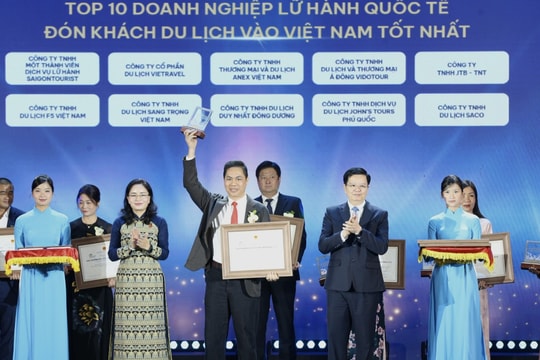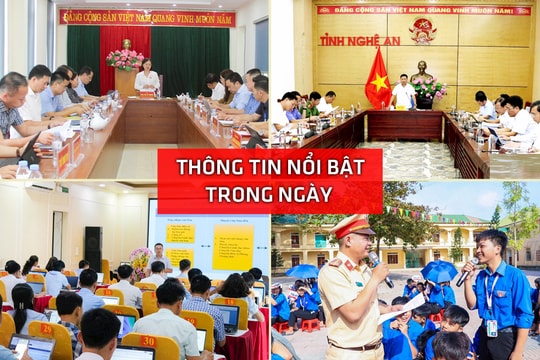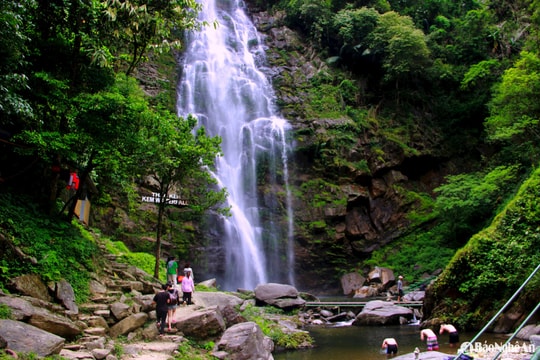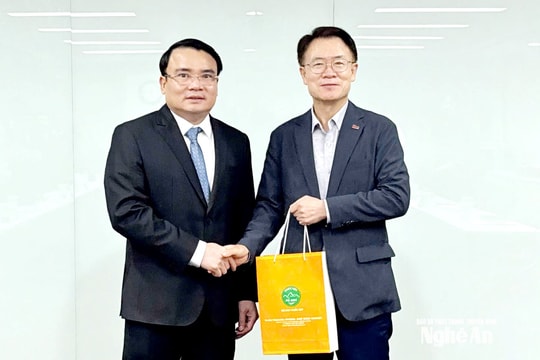Eliminate zero-dollar tours, being strong is not enough
The tourism industry said it would apply stronger penalties to eliminate zero-dong tours to protect tourists' interests. However, many opinions said that penalties alone are not enough to eliminate this type of tour, but it is necessary to improve services, inform customers and cooperate closely with upstream partners.
Zero-cost tour rises
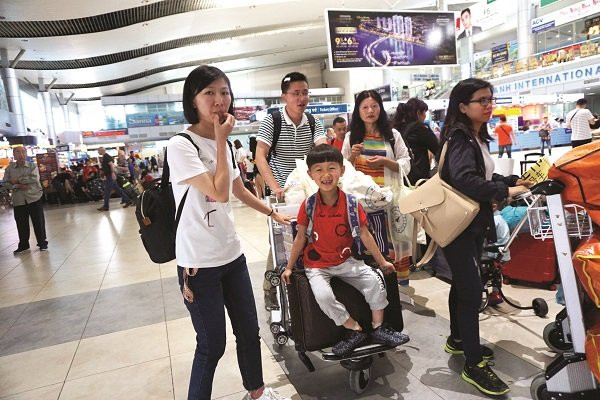 |
| The tourism industry will impose stronger penalties to eliminate zero-dong tours to protect tourists' rights. Photo: Minh Duy |
A 0 VND tour is a type of tour that is sold by a business below cost but makes a profit by forcing customers to buy goods and services at high prices... The tour is usually operated by foreign travel companies themselves or resold to some local travel companies and tour guides.
Zero-dong tours are available in many markets, but are most concentrated in two major markets: China and South Korea. Many travel agencies, tour guides, and shop owners in Quang Ninh, Da Nang, and Khanh Hoa have been fined, and some shops have even been closed, for operating this type of tour for Chinese tourists.
Since last year, zero-dollar tours have temporarily subsided after a series of harsh penalties from the management agency. However, since the beginning of this year, this type of tour has shown signs of resurgence.
Some localities such as Ha Long city, Quang Ninh province continue to implement strict measures to prevent. In particular, the People's Committee of Ha Long city has requested to close and immediately stop all business activities and tourist services of a shopping center belonging to an enterprise in the city, which is said to be part of the zero-dong service chain. A few days ago, the People's Committee of Quang Ninh province also issued a document on handling violations related to welcoming Chinese tourists from zero-dong tours.
Many businesses support these strong measures, saying that it is necessary to take strong measures to improve the tourism environment, maintain the image of the destination and protect tourists. In particular, management agencies need to deal with domestic businesses that support this service. In the Chinese market, to attract customers, although knowing that tour prices are too cheap cannot guarantee quality service, some domestic companies still accept to pay partners from several tens to several hundreds of yuan per customer to receive contracts.
The person in charge of the Chinese market of a large travel company in Ho Chi Minh City said that not only road tours in Quang Ninh but also many chartered air tours for Chinese tourists are using this service. Therefore, the price of chartered tours for Chinese tourists to some localities is currently only equal to the price of a normal round-trip air ticket, so domestic businesses cannot compete.
“Regular businesses cannot participate in any link in the zero-cost tour service chain. We have almost lost the mass tourist market, and can only exploit the market share with higher spending,” she said.
Tourists are "hungry" for information
Talk toPVRegarding the zero-dong tour, many businessmen said that to solve the problem, it is necessary to combine strong sanctions with service development programs, promote information to tourists as well as connect with partners from China to access the market more deeply. If the locality resolutely punishes stores and companies in the zero-dong service chain but does not develop more diverse services to serve and find ways to approach customers, it is impossible.
Having spent a long time observing the flow of Chinese tourists to Cam Ranh, Mr. Colin Blackwell, CEO of Nam Anh Import Export Service Trading Production Company Limited - a business that is providing services at the airport for a number of foreign airlines - said that lack of information is the main reason why many tourists join this type of tour. Most tourists from charter flights are people who have little information about the destination, and often hear bad recommendations from tour leaders about poor service, overcharging sellers... so they often only shop at the stores included in the tour. In addition, these stores also have convenient services such as sending goods back to the country so that tourists are free to go on tours, so many people choose them.
“Tourists are afraid of being scammed if they use services, shop at places outside the tour program and do not know which good places to trust. To help customers and stop this tour, the tourism industry must provide information to them,” Mr. Blackwell said.
According to him, online promotion is the most effective information channel for Chinese tourists. When coming to Vietnam, tourists will connect to the Internet to buy SIM cards, this is an opportunity for sellers to introduce to tourists what they can buy and where to buy. However, the information must be in Chinese and additional logistics services such as packaging, shipping, etc. are needed.
Some other businessmen also have similar opinions, saying that it is necessary to introduce tourist information in Chinese at airports, roads and tourist attractions. In addition, it is necessary to train a team of Chinese-speaking tourist staff to have enough human resources to serve, limiting the shortage of people, so that Chinese partners send people to guide tourists and operate illegal services.
The national tourism authority should also learn from the Thais to approach the Chinese market more effectively. To eliminate zero-dollar tours, Thailand not only strictly suppresses illegal businesses in this service chain but also cooperates closely with the tourism authority and Chinese businesses.
In a discussion about zero-dong tours, Mr. Tu Quy Thanh, Director of Lien Bang Travelink Tourism Company, said that the Chinese tourism management agency itself does not want its citizens to go on these types of tours, so there needs to be cooperation between the two sides to improve the quality of service for customers. "Zero-dong tours are a service that is difficult to eliminate, but if many measures are implemented synchronously, there will be positive changes like other destinations have done," Mr. Thanh said.


